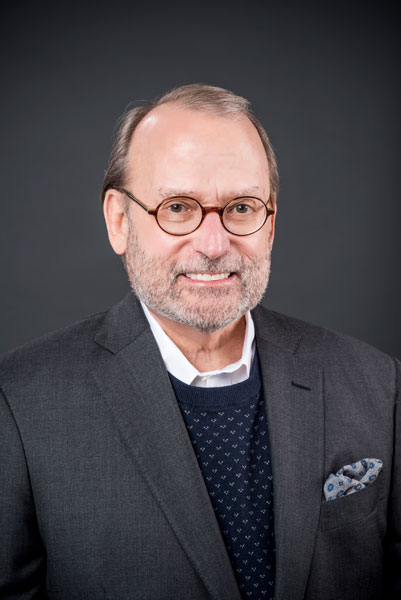“Of course you can:” Cleveland Kinney ’67 celebrates latest honor
“Of course you can:” Cleveland Kinney ’67 celebrates latest honor

In the fall of 1963, F. Cleveland Kinney took the bus each day from the south side of Birmingham to the campus of Birmingham-Southern College. On the weekends, he bagged groceries at an A&P. “Young and naïve,” as he calls himself now, he didn’t know what his future held. But he had an idea that maybe he could find a way to combine two things he enjoyed – art and biology – and so he majored in both
“In the fall of 1966, my mentor and faculty advisor, Dr. Virginia Rembert, called me into her office and said, ‘Cleve, what are you going to do next year? Why don’t you plan on going to graduate school in New York and get a masters or Ph.D. in art history?’ I said, ‘Gosh, you think I could get in?’ And she said, ‘Of course you can.’”
“About a month after that, Dr. Paul Bailey, a wonderful teacher and chairman of the biology department, said, ‘Cleve, what are you going to do next year? Why don’t you go to graduate school at the extension of the University of Alabama at the Medical Center in Birmingham?’ I said, ‘You think I could get in?’ And he said, ‘Of course you can.’”
This spring, Kinney received the 2018 Distinguished Alumnus Award from the University of Alabama Medical Alumni Association, recognizing his “outstanding contribution to the health of all people through basic research, clinical research, health services administration, health care, or others and demonstration of the high principles of the medical profession.”
The choice Kinney made upon graduation from BSC led him here, although it wasn’t a straight path.
In 1968, President Lyndon B. Johnson signed a new draft law abolishing draft deferments for most male graduate students; after his first year of graduate school, Kinney joined the U.S. Navy and was stationed at Headquarters Allied Forces Northern Europe in Oslo, Norway. He remained there until his honorable separation in 1972. When he returned to the U.S., he completed his Ph.D. in anatomy with an emphasis in neuroanatomy at the University of Alabama at Birmingham. Finally, at the age of 36, he entered medical school, earning his degree from the University of Alabama School of Medicine in 1985.
After completing his psychiatry residency and fellowship in geriatric psychiatry at UAB, Kinney joined the UAB Hospital staff. He is now professor emeritus in the UAB Department of Psychiatry and Behavioral Neurobiology.
Even though he ended up following a track to science, Kinney said there is much in his long career that speaks to his love of art and art history -- and to lessons learned at BSC.
“The art classes I took made me excel in gross anatomy. It is a visual science and I’m visually oriented. Psychiatry, in a way, is an art because you have to observe people and observe their behaviors. You have to create treatments based on observation and history,” Kinney said. Even today, he says, his visual mind finds answers in images, looking at MRI scans and correlating behavioral problems based on what he sees.
The attention he received from Rembert – whom he calls “a wonderful teacher, maybe the best I ever had” – and Bailey and Dean of Academics Cecil Abernethy was particularly important in setting the course for his life, Kinney said.
“They showed an interest in me that I had not been shown before,” he said. “I can credit my overall education at Birmingham-Southern with who I am today, and for showing me that I had skills and abilities I didn’t know I had. That college changed my life.”
Kinney has been listed in the Best Doctors in America and been chosen for a number of honors, including the Exemplary Psychiatrist Award from the National Alliance for the Mentally Ill, several Argus Society Awards for Excellence in Teaching, and Outstanding Faculty Teacher by the UAB Psychiatry Residents Association. In 2015, he served as president of Jefferson County Medical Society and was the founding supporter of the Jefferson County Medical Society Medical School Scholarship Fund.
And yet, even after many accolades, when he learned he had received the 2018 Distinguished Alumnus Award from the University of Alabama Medical Alumni Association, the first thing he did was call the number on the letter and ask the person who answered if he was really was supposed to get it.
“And she said, ‘Of course.’”

